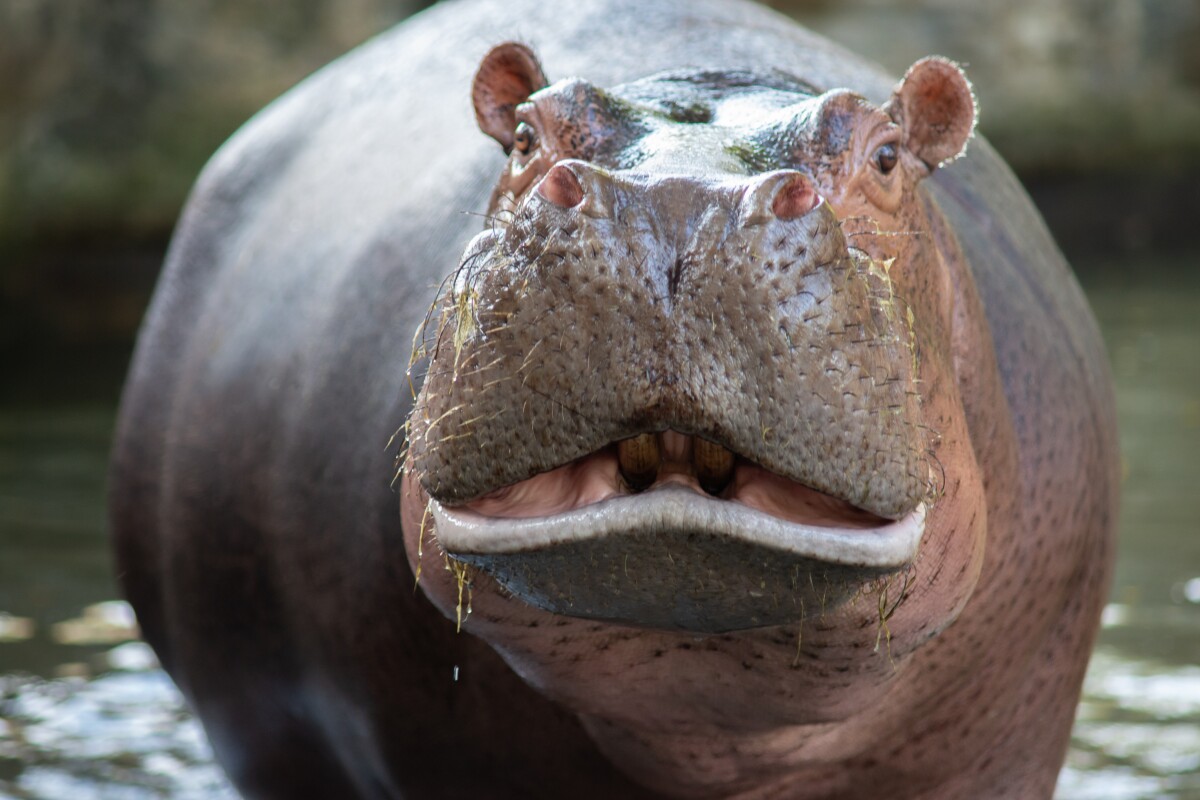
First the whole of South America and also Central America just happens to be the Happy Hunting Ground for the Hippo. Much sooner than later we have to either accept such an expansion or actively control the population or cull the works right now. This is not a minor environmental impact.
Considering what else we have gone and done over the past few centuries, perhaps we could deal with this. My own inclination is to simply cull the works. sooner or later those beaver in the tip of south america will actually meet our hippos on the southern edge of the Amazon.
such fun. Or perhaps we simply establish new colonies all through the amazon and be done with it. then we can introduce a T rex to eat all the alligators, pythons and even hippos. none of this may be impossible and starting it all within a closed refuge would allow the science to shake out..
The "cocaine hippos" have become a huge headache for Colombia
June 05, 2023
https://newatlas.com/biology/cocaine-hippos-habitat-bidoversity-threat-colombia/
The world's most aggressive herbivore is now a Colombian menace
Infamous drug lord Pablo Escobar may be long gone, however he’s still wreaking havoc on his native Colombia thanks to his thriving hippos.
Back in 1981, Escobar illegally imported one male and three female hippopotamuses (Hippopotamus amphibius) from a zoo in the US, and moved them onto his private ranch at Hacienda Nápoles. After his death in 1993, the African animals were left largely to their own devices, breeding and dispersing into the surrounding areas, establishing a healthy population along the Magdalena River.
Now, a Colombian environment ministry census, conducted with local and US scientists, has revealed there are twice as many of the hefty herbivores as originally expected, with as many as 215 likely.
In 2020, it was estimated their numbers had swelled to 98. Now, some scientists warn that the animals, living in relative safety of a hunting ban and having no predators in their adopted country, could number 1,500 by 2035. What's more, the researchers found that around 37% of those counted were juveniles, suggesting that they could be reproducing younger and more often. Hippos can also breed for the majority of their life span, which is around 40-50 years.
“Before, one argument against dealing with the hippos was that our information was limited and our arguments theoretical,” said ecologist ad researcher Rafael Moreno. “But we have put that argument to bed now. This study shows that this is a real issue, and that the state must act urgently.”
Researchers at the National University of Colombia in Bogotá, the Humboldt Institute and Cornare, an environmental body managing an area where the hippos live, went to great efforts to count the tricky-to-track animals. While they’re dangerous to approach, hippos are also nocturnal, travel long distances and spend up to 16 hours submerged in water, making head counts notoriously difficult.
While on the one hand, the population explosion shows the great adaptability of animals, despite their very narrow gene pool, when they’re not faced with limitations like habitat loss, predation and poaching. But these hoof-clad "ecosystem architects" have a huge impact on the physical environment, not to mention the 110 pounds (50 kg) of vegetation they wolf down each day.
They’re also threatening other, native species, with the West Indian manatee (Trichechus manatus), neotropical otter (Lontra longicaudis) and capybara (Hydrochoerus hydrochaeris) being outcompeted for food thanks to the hippos' enormous appetites. Riverbanks, too, are being severely eroded as the animals, which can tip the scales at 3.5 tons, traipse in and out of the water – which is also suffering due to the animals’ enthusiastic aquatic defecation.
While hippo sterilization got underway in 2011, only 10 males were treated due to costs and logistics of getting close to the animals; since 2021, 24 more have been dosed up with the GonaCon Immunocontraceptive Vaccine, a birth control medicine delivered by dart.
The topic of culling is a contentious one, after the shooting of an aggressive male and talk of relocating the animals to parks in Mexico and India have been slow to progress, largely due to the price tag of US$3.5 million.
When an aggressive male nicknamed Pepe was lawfully hunted and killed in 2009, it sparked protests, and eventually led to a culling ban in 2012. Earlier this year, Colombian environment minister Susana Muhamad vowed to protect, not reduce, the population of hippos, which set off alarm bells among researchers concerned for the country’s biodiversity.
"There is a moral weight to the decision to cull a hippo,” Moreno added. "But the weight of the other decision – inaction – is far greater."
No comments:
Post a Comment